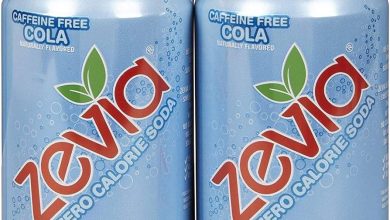Healthy & Nutritious Boiled Asparagus: Benefits, Nutritional Info & Cooking Tips
Asparagus (Cooked, Boiled, Drained) – Nutritional Information
Asparagus, a vibrant and nutrient-packed vegetable, is a wonderful addition to any meal. Known for its delicate flavor and numerous health benefits, asparagus is a low-calorie food, making it an excellent choice for those looking to maintain or reduce their calorie intake. Here is the detailed nutritional profile of cooked, boiled, and drained asparagus:
Nutritional Breakdown
| Nutrient | Amount per 100g |
|---|---|
| Energy | 22 kcal |
| Protein | 2.4 g |
| Total Fat | 0.22 g |
| Saturated Fat | 0.048 g |
| Carbohydrates | 4.11 g |
| Dietary Fiber | 2.0 g |
| Sugars | 1.3 g |
| Calcium | 23.0 mg |
| Iron | 0.91 mg |
| Magnesium | 14.0 mg |
| Phosphorus | 54.0 mg |
| Potassium | 224.0 mg |
| Sodium | 14.0 mg |
| Zinc | 0.6 mg |
| Copper | 0.165 µg |
| Manganese | 0.154 mg |
| Selenium | 6.1 µg |
| Vitamin C | 7.7 mg |
| Thiamin (Vitamin B1) | 0.162 mg |
| Riboflavin (Vitamin B2) | 0.139 mg |
| Niacin (Vitamin B3) | 1.084 mg |
| Vitamin B6 | 0.079 mg |
| Folate | 149.0 µg |
| Vitamin B12 | 0.0 µg |
| Vitamin A | 50.0 µg |
| Vitamin E | 1.5 mg |
| Vitamin D2 | 0.0 µg |
Allergen Information
Asparagus is naturally free of common allergens such as gluten, dairy, and nuts. It is safe for most individuals with food allergies. However, as with all foods, it is important to ensure there are no cross-contamination risks if you are highly sensitive to other allergens.
Dietary Preferences
Asparagus is an incredibly versatile vegetable that fits into many dietary preferences, including:
- Low-calorie diets: With just 22 kcal per 100g, asparagus is an excellent choice for calorie-conscious individuals.
- High-fiber diets: The 2.0 grams of dietary fiber per 100g can help with digestive health and provide a feeling of fullness.
- Vegetarian and Vegan diets: It is entirely plant-based and can be enjoyed by those following vegetarian or vegan lifestyles.
- Gluten-free: Asparagus is naturally gluten-free, making it an ideal choice for those with gluten sensitivities or celiac disease.
- Low-carb and Keto diets: With only 4.11 grams of carbohydrates per 100g, asparagus is a suitable option for low-carb and ketogenic diets.
Health Benefits of Asparagus
Asparagus is a powerhouse of essential nutrients. It is particularly rich in folate, a B vitamin important for cell growth and metabolism. The vegetable also provides a good amount of vitamin C, which supports a healthy immune system. The potassium content of asparagus helps to maintain healthy blood pressure levels, while its magnesium content plays a role in muscle and nerve function.
In addition to these benefits, asparagus is a great source of antioxidants such as vitamins A and E, which help protect the body from oxidative stress. It is also rich in fiber, which aids digestion and promotes gut health. The vegetable’s high water content further supports hydration.
Culinary Tips
Asparagus can be prepared in a variety of ways—whether roasted, grilled, steamed, or sautéed. It is perfect as a side dish or incorporated into salads, soups, and stir-fries. When boiling asparagus, ensure that it is not overcooked to preserve its delicate texture and nutritional value. For added flavor, try pairing it with a drizzle of olive oil, lemon juice, or a sprinkle of parmesan cheese.
Conclusion
Asparagus is a highly nutritious vegetable that provides a wide range of vitamins, minerals, and antioxidants. With its versatility in the kitchen and numerous health benefits, it is a fantastic addition to any meal, whether you are looking to boost your intake of fiber, vitamins, or minerals. Enjoy it as part of a balanced diet to support overall health and wellness.







